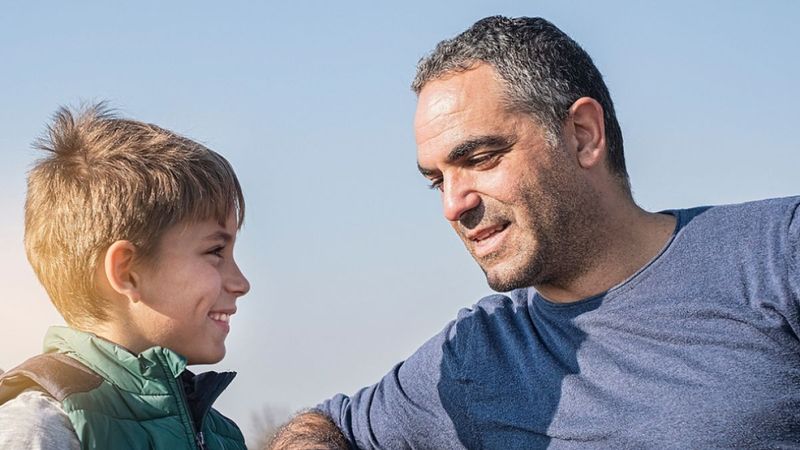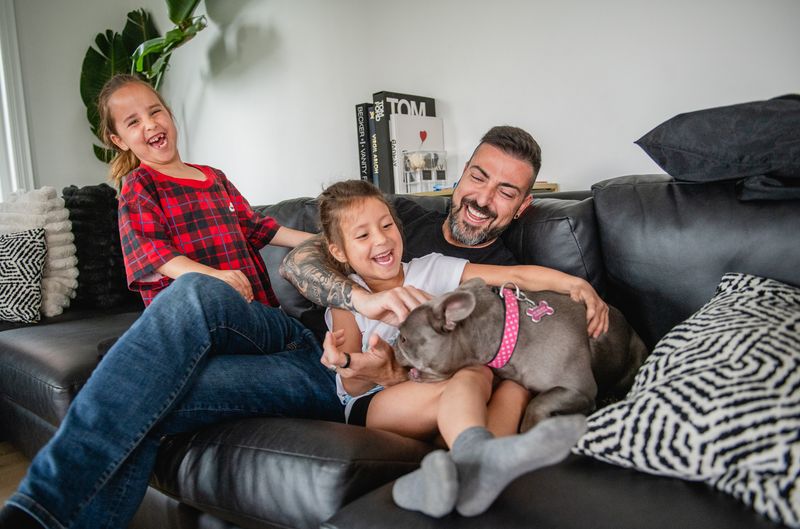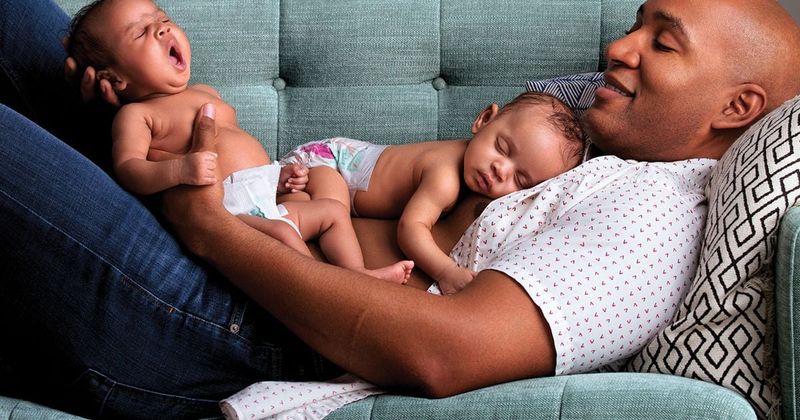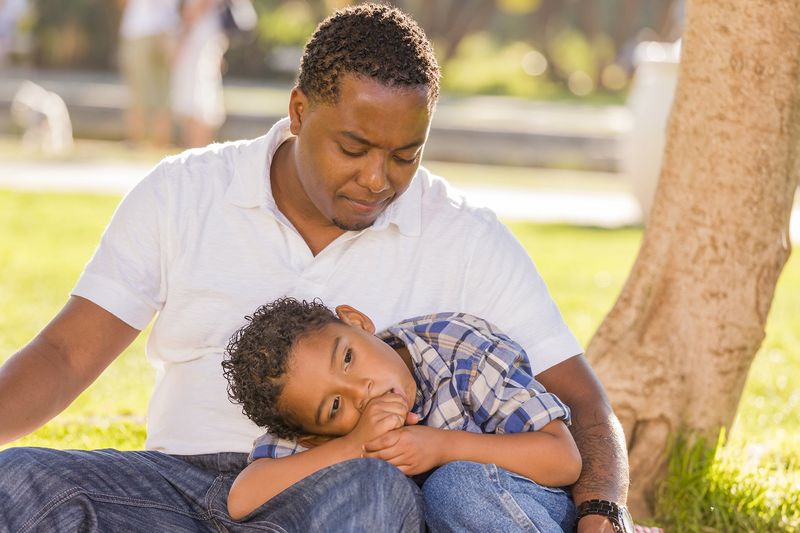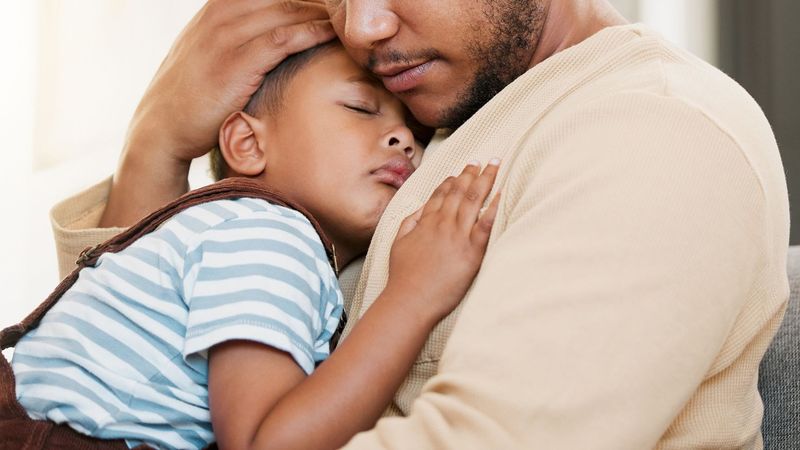The role of fathers has evolved significantly over the years, with modern dads becoming more involved in their children’s lives than ever before. This shift is not just a cultural trend; it’s a profound change driven by various factors, including societal expectations, personal growth, and technological advancements.
Dads today are breaking traditional molds, embracing emotional vulnerability, and prioritizing their families above all else. Let’s explore 17 compelling reasons why modern fathers are more engaged, supportive, and involved with their children.
1. They’re More Emotionally Aware Than Previous Generations
Emotional awareness among modern fathers has reached new heights. Unlike previous generations, today’s dads are more in tune with their own feelings, allowing them to connect deeply with their children. This emotional intelligence helps fathers create a nurturing environment where kids feel valued and understood.
Fathers today are not afraid to express love and vulnerability, breaking away from the stoic stereotypes of the past. This change fosters open communication, which is crucial for a child’s emotional development. By embracing their emotions, modern fathers are not only enriching their own lives but setting a powerful example for their children to follow. This shift encourages a more balanced and emotionally healthy family dynamic.
2. Work-Life Balance Has Become a Priority
In today’s fast-paced world, achieving work-life balance is a major goal for many fathers. They realize the importance of being present in their children’s lives while also fulfilling their professional duties. This dual focus ensures that fathers can provide both financial support and emotional presence.
More companies offer flexible working hours or remote work options, making it easier for fathers to attend school events or spend quality time with their kids. This balance is not just beneficial for the children but also enhances the father’s own well-being, leading to a more fulfilling life. As work-life balance becomes a priority, families thrive together.
3. Parenting Roles Are Less Gendered
The evolution of parenting roles has seen a significant shift towards equality. Modern fathers are embracing responsibilities traditionally seen as maternal, such as cooking meals or helping with homework. This shift is breaking down gender stereotypes and promoting a more cooperative family environment. Sharing parenting duties not only strengthens the marital relationship but also models partnership for children.
When fathers engage in all aspects of parenting, it signals to their kids that chores and care are not gender-specific. This cultural shift empowers both parents and children, fostering an environment of respect and collaboration within the home. It’s a win-win for families.
4. Social Media Highlights the Joy of Fatherhood
Social media has become a powerful tool in showcasing the joys and challenges of fatherhood. Modern dads are increasingly sharing moments of bonding with their children, creating a new narrative around what it means to be an involved father. Platforms like Instagram and Facebook offer spaces where fathers can express pride, humor, and love openly.
This visibility challenges outdated stereotypes and encourages other dads to engage more with their kids. These online communities provide support and inspiration, reminding fathers that they are not alone in their journey. Social media has thus become a catalyst for change, highlighting the beauty of modern fatherhood.
5. Therapy and Self-Work Are More Accepted
Therapy and personal development have shed their stigma, with more fathers embracing these tools to improve themselves. Engaging in therapy allows dads to address personal issues, resulting in healthier relationships with their families. Today’s fathers understand that self-work leads to better parenting, as addressing one’s own challenges can prevent them from surfacing in interactions with children.
This acceptance of therapy fosters a culture of growth and healing, benefiting the entire family dynamic. By prioritizing self-improvement, fathers set a positive example for their kids, demonstrating that seeking help and self-awareness are strengths, not weaknesses. It’s a transformative shift.
6. They Want to Break Cycles, Not Repeat Them
The desire to break negative family cycles is powerful among modern fathers. Many are determined to offer their children a different experience from what they might have had. They consciously choose to discard harmful behaviors and patterns, opting for more nurturing approaches. By doing so, fathers are rewriting their family legacies, creating environments of growth and empathy.
This intentional break from the past not only benefits their children but also offers personal healing and satisfaction. Modern fathers are more reflective and intentional, using their past as a guide to shape a more positive future for their families.
7. Dads Are Showing Up in School Meetings and Dance Classes
Gone are the days when school meetings and extracurricular activities were predominantly attended by mothers. Today’s fathers are actively attending school meetings, dance classes, and sports events. Their presence signifies a commitment to being an integral part of their children’s education and interests. This involvement not only strengthens the father-child bond but also reassures children of their importance in their parents’ lives.
Fathers today are demonstrating that parent involvement is not gendered but a shared responsibility. Their active participation in various activities shows children that they are supported and valued, fostering a sense of security and belonging.
8. They’re Actively Learning Parenting Skills
Modern fathers are proactive in learning about parenting, eager to understand and implement the best practices for raising their children. They seek knowledge through books, online resources, and parenting workshops to enhance their skills. This dedication reflects a commitment to being the best parent they can be, unafraid to ask questions or learn new techniques.
Fathers today are open to discussions about child-rearing, sharing experiences with peers and gaining insights. By actively engaging in their educational journey as parents, they ensure a nurturing and informed environment for their children, contributing positively to their development and well-being.
9. Remote Work Opens the Door to More Involvement
The rise of remote work has revolutionized how fathers engage with their families. With flexible schedules, fathers can now spend more time at home, participating in daily routines and activities. This proximity allows them to be more involved in their children’s lives, from helping with homework to engaging in playtime.
Remote work eliminates the time lost to commuting, freeing up hours that can be spent nurturing family bonds. This shift not only benefits the children but also enriches the father’s life, offering a balanced approach to work and family. It’s a modern adjustment with lasting positive impacts.
10. They Know Time Is the Real Currency
Modern fathers are prioritizing time over material possessions, understanding that meaningful experiences create lasting memories. They strive to spend quality time with their children, valuing moments of connection over extravagant gifts. This focus on time as the true currency enhances familial bonds and contributes to a child’s emotional well-being.
Fathers are more present, engaging in activities that foster closeness and understanding. By valuing time, they teach their children the importance of relationships and shared experiences. This shift towards prioritizing presence over possessions is redefining what it means to be a parent in today’s world.
11. They Want Their Kids to Feel Safe with Them
Creating a safe haven is a priority for today’s fathers, who strive to be a comforting and reliable presence for their children. They understand that emotional security is foundational to a child’s development and well-being. Fathers today actively work to build trust and openness, ensuring their kids feel secure in expressing themselves.
This commitment to safety and support fosters a nurturing environment where children can thrive. By prioritizing their children’s emotional needs, fathers are setting the stage for confident and resilient young individuals. It’s a profound shift towards empathetic and supportive parenting, focused on the child’s holistic growth.
12. Parenting Isn’t Seen as Just “Mom’s Job” Anymore
The perception that parenting is solely a mother’s responsibility is rapidly changing. Modern fathers are embracing their roles as equal partners in raising their children, taking on duties that were traditionally seen as maternal. This shift is reshaping family dynamics, promoting equality and teamwork. Fathers are actively involved in daily parenting tasks, from cooking to bedtime routines, challenging outdated norms.
This involvement not only supports the mother but also enriches the father-child relationship. By participating equally, fathers are demonstrating that parenting is a shared journey, benefiting the entire family and creating a more balanced home environment.
13. They Value Soft Skills as Much as Discipline
Modern fathers are recognizing the importance of soft skills such as empathy, kindness, and communication in their parenting approach. They understand that discipline is important, but so are the softer aspects that contribute to a child’s emotional intelligence. By valuing these skills, fathers are facilitating environments where children can express themselves freely and learn the nuances of human interaction.
This balanced approach helps in cultivating well-rounded individuals who are confident and compassionate. Fathers today are leading by example, showing that strength lies not just in authority but in understanding and emotional connection.
14. They’re Willing to Say “I Don’t Know” and Learn
Admitting uncertainty is a strength modern fathers embrace, showing their children that it’s okay not to have all the answers. This openness to learning together fosters a sense of curiosity and humility within the family. Fathers today actively seek knowledge alongside their children, whether through exploration, study, or discussion.
By admitting they don’t know something, they model lifelong learning, encouraging their children to stay curious and open-minded. This approach not only builds a strong bond but also cultivates a culture of growth and exploration. It’s a refreshing shift towards shared learning experiences.
15. They Take Pride in Everyday Moments
Modern fathers find joy and pride in the everyday moments that make up family life. From witnessing first steps to bedtime stories, these small instances create cherished memories. Fathers today celebrate these milestones, understanding that true happiness lies in the simplicity of shared experiences. Their appreciation for daily life fosters a nurturing and joyful family atmosphere.
This focus on the present helps build strong familial bonds, ensuring that children feel loved and valued. By taking pride in everyday moments, fathers are teaching their children to appreciate life’s simple pleasures, creating a foundation for lasting happiness and connection.
16. They’re Raising Sons Who Feel, Not Just Fight
Modern fathers are actively encouraging their sons to embrace emotions and sensitivity. This approach moves beyond the traditional “tough guy” image, promoting emotional intelligence and empathy. Fathers today are teaching their sons that feeling deeply is a strength, not a weakness. By fostering emotional awareness, they are raising sons who are compassionate and understanding, capable of forming healthy relationships.
This shift not only benefits their sons but also influences societal norms, breaking down outdated stereotypes about masculinity. It’s an empowering change, creating a more empathetic and emotionally aware generation.
17. They Know That Presence Is Powerful
The profound impact of being present is well recognized by modern fathers. They understand that their presence is more valuable than any gift, creating a sense of security and love in their children. Fathers today prioritize being there for their kids, whether at home, school, or during activities. This commitment to presence builds a strong foundation for trust and connection, allowing children to thrive.
By valuing presence, fathers are showing that love is expressed through time and attention, not just words or material possessions. It’s a meaningful approach, emphasizing the importance of being truly involved and attentive.


